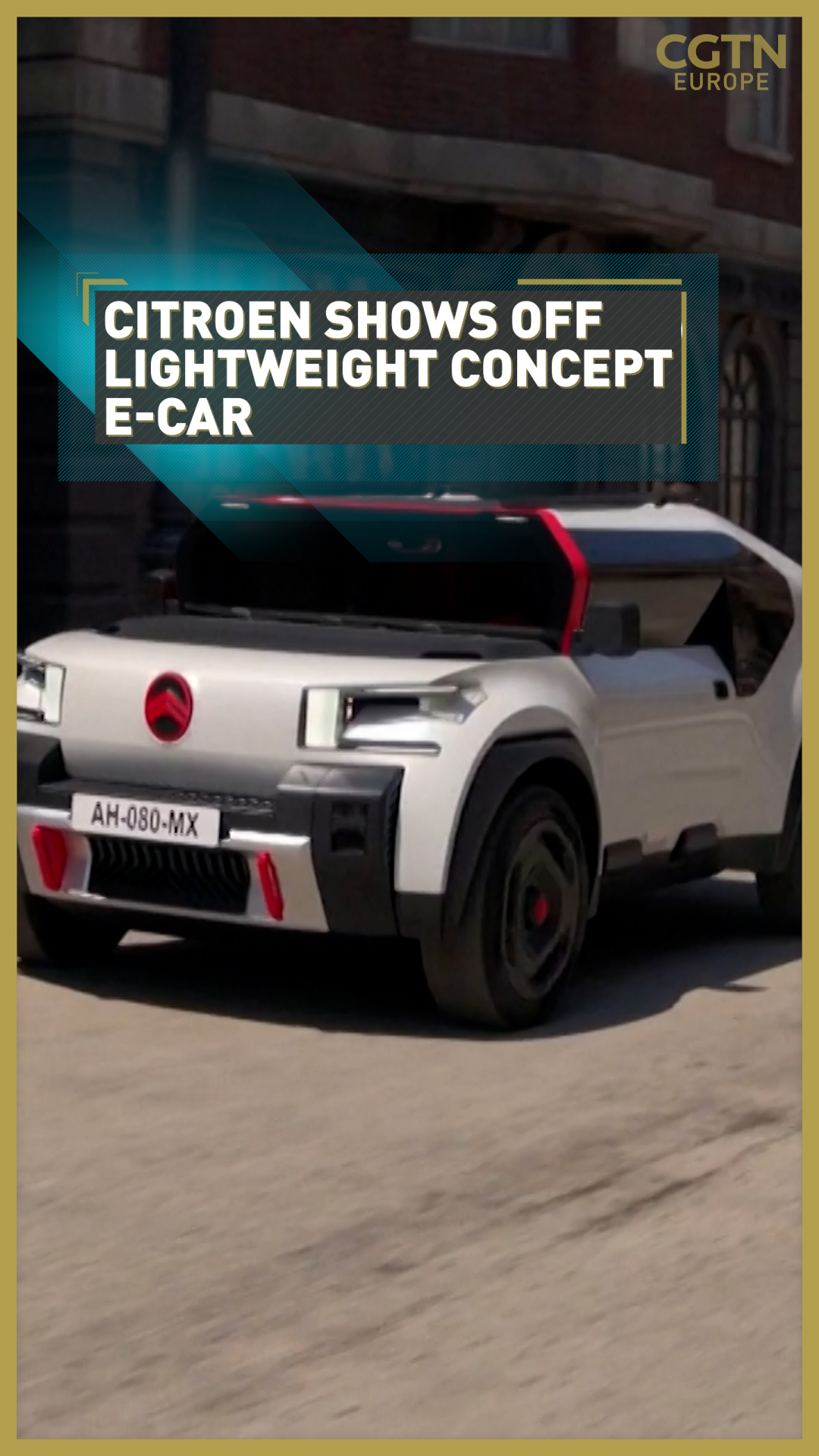00:56

Citroen says its new lightweight 'Oli' concept electric car has been designed to bring the circular economy into the automotive world, while highlighting ways of reducing the prohibitive cost of electric vehicles (EV).
The French firm says Oli is part of Citroen's wider EV strategy, which aims to reverse current trends by making vehicles lighter, less expensive, "and more accessible to the average consumer."
Speaking at Oli's launch in Paris, Vincent Cobee told CGTN Europe: "We want to remain accessible, affordable, and offer a quality of service. On top of that, we want to be inserted into a circular economy and use a lot of recycled materials, managing the life of the vehicle, and ensuring recycling at the end of its life."
READ MORE
The life and times of Queen Elizabeth II
Global leaders pay tributes to UK monarch
Mid-Autumn Festival poetry
According to the company's press release, Oli has a "flat bonnet, (cardboard) roof and pick-up bed panels made from recycled honeycomb cardboard." It aims for vehicle parts to be "reused or recycled throughout ownership."
Oli's top speed is limited to 68 miles per hour to maximize efficiency, while the company says an 80 percent charge takes 23 minutes.
The car is not coming on to the market, despite being road legal, but Cobee said it showed how future EVs could both weigh and cost less, while improving their energy efficiency.
"We've set an ambitious target for ourselves from this car," he said. "Currently everybody increases the weight (of cars) and we believe we should do the opposite. We should bring the weight down to make them cost less, make them more efficient, use less resources, and at the end, be more recyclable."

Citroën CEO Vincent Cobee poses next to the Citroen Oli at its Paris launch. /Eric Piermont/AFP
Citroën CEO Vincent Cobee poses next to the Citroen Oli at its Paris launch. /Eric Piermont/AFP
Soaring costs
Recent studies show that global consumers are put off by the high purchase costs and limited range of EVs. Cobee insisted that high prices were not inevitable.
He told CGTN: "The average purchase price of a car in Europe today is €25,000 ($24,447), but if you look at 100 percent electric cars the average purchase price is €45,000 ($44,004). We want to develop vehicles (so they cost) around this average transaction price of €25,000 ($24,447). That's why we talk about weight reduction, innovation, and efficiency."
The car's bumpers are the same as used in the Citroen Ami, which the company says reduces costs in manufacturing, repairing, and environmental impact. Cobee insists Citroen is coping with the current economic climate which involves soaring costs, inflation, and residual supply chain issues.
"We have to face the cost of energy going up," he said. "So we reduced temperature in the plants, reduced energy consumption. We're working with suppliers in minimizing energy consumption and creating parts. All of this will give us opportunities to weather the storm of energy costs as an industry."

